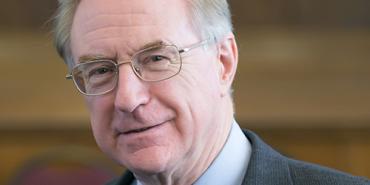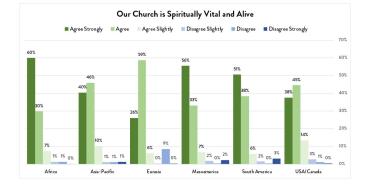Some Reasons to Be Gratefully Cautious

At almost every point in our history, voices have questioned whether the Church of the Nazarene has lost, or is in danger of losing, its way. While most of us would vehemently deny such charges, thoughtful, reflective persons ask questions, seeking truthful answers that can help uncover reality. Following are some questions and thoughts that I believe can help us be gratefully cautious.
Every generation must think about the church's ability to balance evangelism, scriptural preaching and teaching, and godly separation from the world. Why? Because every generation will find itself immersed in a changing social milieu that offers challenges to the practice and spread of scriptural holiness.
Every member of the church should be concerned about maintaining an environment in which there is a spiritual anointing in the life of the congregation. It is this kind of anointing upon our public services that produces conviction of sin, self-examination by believers, and fervent, evangelistic urgency to see lost people saved.
Because the church is a learning center, we need to frequently address every discipleship venue. Are our children, youth, and newer believers learning the doctrines of scriptural holiness? Do we know what we believe and why?
That these times are challenging is a statement that goes without saying. Some religious communities have adopted a therapeutic approach to the proclamation of the gospel rather than presenting the invitation to decision.
Is the encroaching influence of political correctness impinging upon our proclamation?
Does the church have the right to challenge backsliding and worldliness while calling sinners to a moment of decision at the foot of the Cross? Is there pressure to provide our itching ears with palatable content that only slightly incites us to repentance, remorse over sin, and restitution?
At the recent USA/Canada Nazarene Youth Conference (NYC), General Superintendent David Graves concluded the Sunday worship time with a message on entire sanctification. He writes, "I preached from Romans 6 and living a life of holiness. At the conclusion I gave an invitation and they came by the hundreds to commit their lives totally to God. I was overwhelmed by their immediate response. It was a great NYC—there is a spiritual hunger and openness among our youth."
It is gratifying to see resistance from our leaders against revising the doctrine of holiness around the tenets of human altruism. Our laudable compassionate ministry projects can never become the sole measure of the church's impact in the community. Such was the seductive assumption that gave birth to the rise of Mainline Protestantism's social gospel emphasis.
Presence in the community must always be balanced by proclamation of the gospel of Jesus Christ that transforms and saves the believer from sin and condemnation.
We should value the motivation of our churches to help the needy, for this is clearly a scriptural impulse and injunction. But a closer reading of the gospel reveals the combination of generous action and truthful proclamation that God wants "everyone to come to repentance" (2 Peter 3:9). Compassion and proclamation—the whole gospel—must go hand in hand if we are to remain faithful to the biblical ideal.
Every century offers the church significant challenges. Following the financial upheaval of two World Wars, the Church of the Nazarene adopted the demanding challenge of evangelizing the world under the banner, "All Out for Souls." Halfway into our first century, the church proclaimed its continuing commitment to a "Mid-Century Crusade for Souls."
Perhaps the time has come again to boldly, unequivocally challenge every Nazarene to pursue holiness of heart and life, evangelistic fervency, biblical stewardship of bringing the tithes and offerings into the church, and involvement and investment in global missions. I believe our best days are still ahead if we will continue to walk in the light.
David J. Felter
Holiness Today, September/October 2011
Please note: This article was originally published in 2011. All facts, figures, and titles were accurate to the best of our knowledge at that time but may have since changed.




